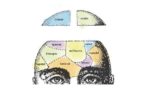My 20 years of experience as a practicing physician has convinced me that medication is often misused in modern psychiatric practice. Medication itself is not the cause of this problem. The cause is the belief held by most physicians, and by academic and governmental research centers as well, that people, and in fact all living things, are simply complicated biochemical machines, and that psychiatric illness is a biochemical imbalance that can be remedied with medication. When applied to mechanical things, this mechanistic approach has led to the development of many inventions which make our lives easier, such as the automobile, the credit card and the CT scanner, but as a model for understanding life and mental illness, it has failed utterly.
If the belief that biochemical imbalances cause most psychiatric illness is one pillar of modern psychiatric practice, then The Diagnostic and Statistical Manual (DSM-IV and soon V) has become its second pillar. This manual ignores the many years of research in depth psychiatry that demonstrate the function of psychiatric symptoms in a person’s emotional and character structure and instead reduces psychiatric diagnosis to a checklist of signs, symptoms and behaviors. Even its authors admit a lack of evidence for many of its diagnostic categories. Once a diagnosis is assigned, then medication is usually prescribed to correct the “biochemical imbalance” which is assumed to be the cause of the “disease.”
I am not against the use of psychiatric medications when they are appropriate, but it is important to understand what these medicines can and cannot do. Psychiatric medications are never a cure. They can suppress certain symptoms, but they do this at a cost, and the cost is not just side effects. Psychiatric medications not only suppress symptoms, they blunt people’s emotional responses and even their thinking and perception.
In my psychiatric practice I try to help patients face painful feelings such as anxiety or depression. This allows patients to uncover the buried thoughts and feelings that are behind the psychiatric symptoms. Most people are not aware of just how much repressed emotional baggage they carry around with them every day, but by careful analysis of the ways in which people hide their thoughts and feelings from themselves, we can open the door to the expression of those thoughts and feelings. Once patients lose their fear of showing what they really think and feel, psychiatric symptoms such as depression or anxiety often improve spontaneously.
It is important to understand that no one should make the decision to stop taking psychiatric medication lightly. The consequences may include severe anxiety, psychosis, depression and even suicide, but the rewards may be great as well. In my practice I have found that the time to start reducing medication is when the patient becomes aware that the medication is “in the way.” Patients will often tell me “I used to be able to cry,” or “I used to be able get more excited about things.” This is a sign that they are ready to feel more, and if they are ready to take responsibility for the appropriate expression of their feelings, then medication can be reduced.
In my office, who you are is more important than your disease. Some problems cannot be treated in an outpatient setting, and some patients may require medication, but if you have a desire to get more out of life, and if you want more from your treatment than “medication management,” then we may work well together.









